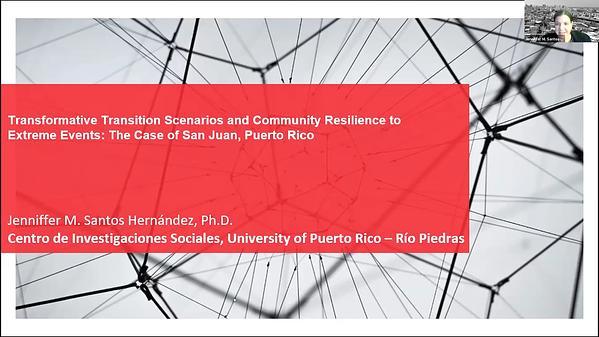Would you like to see your presentation here, made available to a global audience of researchers?
Add your own presentation or have us affordably record your next conference.
keywords:
colonialism and post colonialism
disaster
caribbean
The year 2017 stands in the memory of many people of the Caribbean as the moment when the effects of anthropogenic climate change became painfully tangible. In Puerto Rico and the US Virgin Islands, the two non-state U.S. territories in the Caribbean, the double impact of Hurricanes Irma and Maria less than two weeks apart gave many residents a sense of what the Anthropocene’s new normal may be: a barrage of relentless powerful storms that, when combined with a lengthy history of colonial domination, post-colonial abandonment, neoliberal extractive capitalism, and rigid and culturally distant bureaucracies of US federal “relief” agencies, precipitated a catastrophe that seems to have no recovery in sight. Intertwined with all of this, the residents of these US Territories have, in the aftermath of Hurricanes Irma and Maria contended with a proliferating discourse of resilience on the part of Federal disaster response institutions that routinely de-historicizes and de-politicizes conditions of disaster risk, bureaucracies that systematically exclude the most socio-economically marginalized residents of the islands, and gentrification on the part of affluent opportunistic investors and “expats” from the US mainland. Engaging the conference theme of Truth and Responsibility, this panel explores the role of anthropology in illuminating the unfolding history of slavery, extractive plantation economies, colonial and post-colonial abandonment, American imperialism, and neoliberal capitalism that have, on the one hand, made the US Caribbean territories a place of strategic enrichment for colonial settlers and capitalist investors while, on the other, systematically abandoning and excluding ancestral afro-descendant and working class Hispanic populations. We mobilize new ethnographic data from this post-disaster moment to reflect on the forms of subaltern sociality, livelihood, and community organizing that the people of these US Territories have devised over five centuries and the possibilities that these practices and their accompanying discourses present for imagining the future of the region in a time when the future itself is considered highly uncertain. We hope to mobilize our ethnographic data as a means of imagining another Caribbean, one that is not plagued by abandonment and neoliberal necropolitics, and we also hope that such an imaginary helps us ruminate on ways of re-imagining resilience in the Anthropocenic post-colony.

